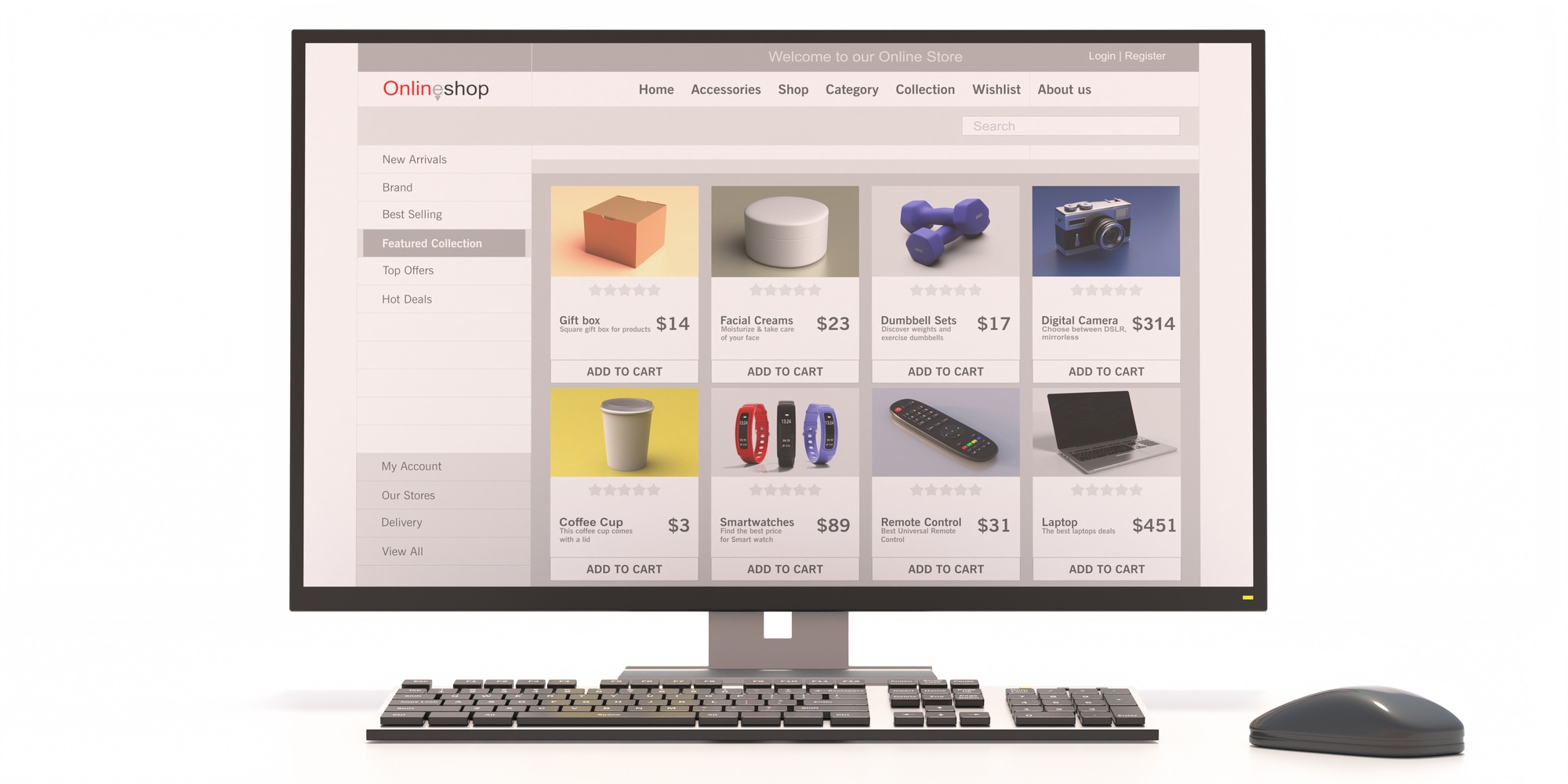Key Takeaways

- Explore Various Platforms: Numerous e-commerce platforms like WooCommerce, BigCommerce, and Wix offer robust alternatives to Shopify, catering to diverse business needs.
- Customization & Flexibility: Platforms such as WooCommerce provide extensive customization options, allowing you to tailor your online store according to specific brand requirements, though it may require more technical skills.
- Cost-Effective Solutions: Many alternatives, especially BigCommerce and Wix, offer straightforward pricing models with no transaction fees, making them accessible for small businesses on a budget.
- User-Friendly Interfaces: Wix eCommerce stands out with its drag-and-drop functionality, simplifying store creation for those without technical backgrounds.
- Integrated Marketing Tools: Built-in SEO and marketing tools across these platforms enhance visibility and customer engagement, which is critical for e-commerce success.
- Consider Growth Potential: When choosing a platform, assess scalability options to ensure it can accommodate your business as it grows, preventing limitations in future expansion.
If you’re looking to launch your online store but want options beyond Shopify, you’re in the right place. With the rise of e-commerce, numerous platforms offer similar features that can cater to your unique business needs. Whether you’re a small business owner or an aspiring entrepreneur, exploring these alternatives can help you find the perfect fit.
From user-friendly interfaces to robust integrations, these websites provide a variety of tools to help you build and manage your online presence. Dive into this guide to discover platforms that can elevate your e-commerce game and help you achieve your business goals without the constraints of a single solution.
Overview of E-Commerce Platforms

E-commerce platforms serve as essential tools for small businesses aiming to establish an online presence. These platforms offer various features that facilitate store setup, inventory management, and payment processing, making them accessible for entrepreneurs without extensive tech backgrounds.
Several popular platforms, such as WooCommerce, BigCommerce, and Wix, ensure user-friendly interfaces. You can customize your online store’s design and functionality based on your specific business needs. Additionally, these platforms provide integrations with various third-party applications, enhancing your store’s capabilities.
When selecting a platform, consider your business’s goals and budget. Tiered pricing models typically exist, allowing you to choose a plan that aligns with your financial framework. Some platforms also offer scalable solutions, meaning as your business grows, you can upgrade services to meet increased demand.
Furthermore, e-commerce platforms often come with built-in SEO tools that help your products rank higher in search results. With an emphasis on technology, these features enable your small business to gain visibility and build an online identity effectively.
Exploring different platforms empowers you to find the best fit for your e-commerce needs and supports your entrepreneurial journey.
Popular Websites Similar to Shopify

Several e-commerce platforms provide alternatives to Shopify, catering to the needs of your small business. Key players like WooCommerce, BigCommerce, and Wix eCommerce offer various features designed to enhance your online store.
WooCommerce
WooCommerce is a popular choice for small businesses, especially if you’re already using WordPress. This open-source platform is free to download but requires payment for hosting, plugins, or themes. You gain complete code control, enabling extensive customization options. However, expect some complexity during setup, as technical management plays a significant role in its functionality. Many small business owners appreciate its flexibility to tailor their online presence effectively.
BigCommerce
BigCommerce stands out with its straightforward pricing that starts at $29 per month, featuring no transaction fees across any plan. This platform provides a rich array of built-in features, making management easier for your small business. BigCommerce supports high-growth businesses with seamless integrations and responsive designs. You can quickly scale your operations without worrying about additional costs related to transactions, enhancing your tech-savvy approach to e-commerce.
Wix eCommerce
Wix eCommerce simplifies store creation with user-friendly drag-and-drop functionality. This platform offers visually appealing templates and a comprehensive suite of e-commerce tools, making it ideal for small business owners without extensive tech backgrounds. Pricing is competitive, allowing you to create a professional online store while keeping costs low. Its built-in marketing tools support your business growth by helping you connect with customers effectively.
Key Features to Compare

When exploring alternatives to Shopify, focus on key features that can impact your small business’s success. Consider the pricing structures, customization options, and payment gateways of each platform.
Pricing Structures
Pricing structures vary significantly among platforms. For instance, Wix starts at $29 per month, with a 10% discount available, making it accessible for small businesses. Squarespace offers their Commerce Basic plan at $28 per month and the Advanced Commerce plan at $52 per month. Analyzing these pricing tiers helps you determine which option aligns best with your budget and business goals.
Customization Options
Customization options play a vital role in showcasing your brand. Wix provides a drag-and-drop editor that enables extensive layout and theme adjustments. However, note that changing a live site’s template often requires starting over. Squarespace also offers customizable templates, ensuring that you can design a professional-looking store without needing advanced tech skills. Prioritize platforms that allow you to create a unique online store that reflects your business’s identity.
Payment Gateways
Payment gateways impact your customers’ purchasing experience. Wix supports over 80 payment options, including PayPal, Wix Payments, Stripe, and Square, ensuring flexibility for your customers. This variety is crucial for small businesses aiming to accommodate diverse payment preferences. Investigate the payment integration options available with each platform to enhance your e-commerce capabilities effectively.
Pros and Cons of Alternative Platforms

Exploring alternative e-commerce platforms equips you with insights into their strengths and weaknesses, helping you make informed decisions for your small business.
Advantages of Using Alternatives
- Better Value for Money: Many platforms, like Wix, provide a range of built-in features, reducing your dependency on costly third-party apps. This helps you save on additional expenses crucial for small business budgets.
- Customization Options: Options like Wix come with drag-and-drop editors that enable you to design your site on your terms. You can adjust layout, color, font, and elements, ensuring your store reflects your brand without needing extensive tech skills.
- Built-in Features: Platforms often come with essential tools tailored for small businesses. Wix, for instance, includes features like Wix Booking and Wix Donations, allowing you to manage various business needs without external plugins.
Disadvantages of Using Alternatives
- Template Limitations: Some platforms impose restrictions on template changes. Once your site is live, altering the template might require starting from scratch, presenting a considerable hurdle if your business evolves.
- Learning Curve: Although many platforms prioritize user-friendliness, some can still trigger a steep learning curve. Adapting to new technologies might pose challenges for those with limited technical expertise.
- Limited Scalability: Certain alternatives may not accommodate fast-growing small businesses effectively. You might find that features or integrations fall short as you expand, hindering your growth potential.
Conclusion

Exploring alternatives to Shopify opens up a world of possibilities for your online store. Each platform offers unique features that can cater to your specific business needs. Whether you prioritize ease of use, customization, or pricing, there’s an option that aligns with your goals.
By considering your business objectives and budget, you can make an informed choice that enhances your e-commerce experience. Don’t hesitate to dive deeper into these platforms and discover the one that fits your vision best. Your ideal e-commerce solution is out there waiting for you.
Frequently Asked Questions

What are some alternatives to Shopify for launching an online store?
There are several alternatives to Shopify, including WooCommerce, BigCommerce, and Wix. Each platform offers unique features tailored to different business needs, allowing entrepreneurs to establish a strong online presence.
Why should small business owners explore e-commerce platforms?
Small business owners should explore e-commerce platforms because they provide user-friendly interfaces, robust integrations, and essential tools for store setup, inventory management, and payment processing, even for those without tech expertise.
What features should I compare when choosing an e-commerce platform?
When selecting an e-commerce platform, compare pricing structures, customization options, and payment gateways. Understanding these features can help you align your choice with your budget and business goals.
How does WooCommerce differ from other platforms?
WooCommerce is particularly favorable for businesses using WordPress as it offers extensive customization options. However, it may involve a steeper learning curve during setup compared to platforms like Wix or BigCommerce.
Is BigCommerce a good option for growing businesses?
Yes, BigCommerce is an excellent choice for high-growth businesses due to its straightforward pricing structure and built-in features that eliminate transaction fees, making it easier to scale without significant costs.
What makes Wix eCommerce user-friendly?
Wix eCommerce is known for its user-friendly drag-and-drop functionality, allowing users without a tech background to create and manage their online stores easily, all while offering competitive pricing.
Are there any drawbacks to using alternative e-commerce platforms?
Yes, there are some drawbacks, such as potential template limitations, learning curves, and limited scalability for rapidly growing businesses. It’s essential to evaluate each platform’s strengths and weaknesses before deciding.
How important are built-in SEO tools in e-commerce platforms?
Built-in SEO tools are crucial as they help improve product visibility in search results. This feature can significantly boost your online store’s traffic and ultimately increase sales.
Image Via Envato



